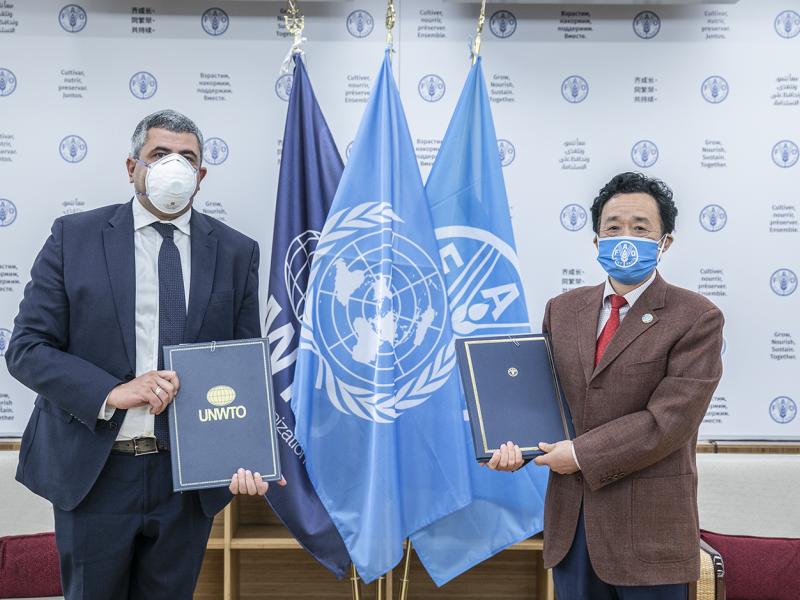
(TAN): United Nations World Tourism Organization (UNWTO) and the Food and Agriculture Organization of the United Nations (FAO) have signed a Memorandum of Understanding that will see the two agencies work together to advance shared goals related to the sustainable and responsible growth of rural tourism.
In leading the sector’s response to Covid-19 and now guiding the global restart of tourism, UNWTO has been working closely with fellow UN agencies from the start of the crisis. This new MoU comes on the back of World Tourism Day 2020, which was celebrated around the special theme of Tourism and Rural Development. As part of the MoU, UNWTO and FAO will build a framework for enhanced collaboration, including through the sharing of knowledge and resources.
[ALSO READ: Brand USA partners with Airbnb to provide virtual travel through the country]
UNWTO Secretary-General Zurab Pololikashvili said: “This Memorandum of Understanding between UNWTO and the FAO emphasises the cross-cutting nature of tourism and the importance of cooperation at every level to ensure the sector works for everyone. Both tourism and agriculture are lifelines for communities around the world.”
A central aim of the collaboration will be to increase the resilience of rural communities against social and economic shocks through growing tourism and making it both more sustainable and inclusive. Across the FAO’s GIAHS (Globally Important Agricultural Heritage Systems) network of communities, tourism is a leading driver of equality, with the sector employing women and youth and giving them a stake in economic growth. Tourism is also a protector of the rich cultural heritage that characterizes many of the communities within the GIAHS network, for instance through keeping folklore and other traditions alive for future generations.
[ALSO READ: 120-room Hyatt Place hotel opens in heart of downtown Moncton]
Moving forward, the new MoU states that UNWTO and FAO will work together to establish a plan for more specific areas of collaboration. Key priorities, as outlined in the agreement, include encouraging entrepreneurship within rural communities, particularly among youth and women, with the aim of providing them with access to both local and global markets for their products. Other priorities include fostering education and skills so as to provide communities with opportunities within the tourism sector.




